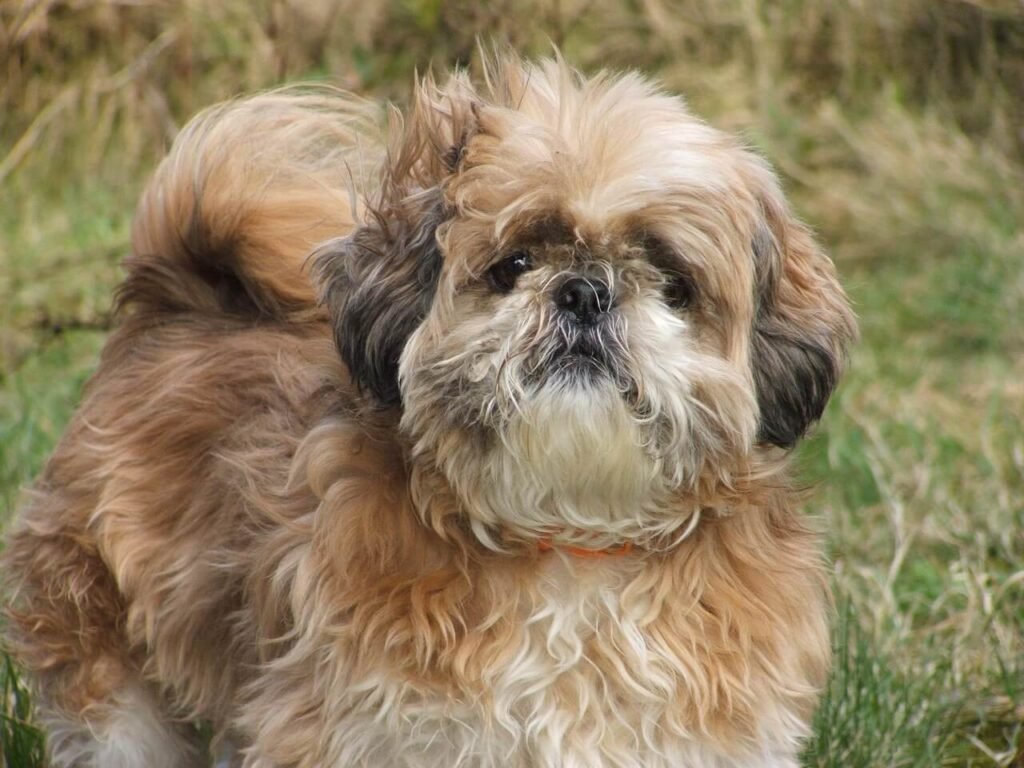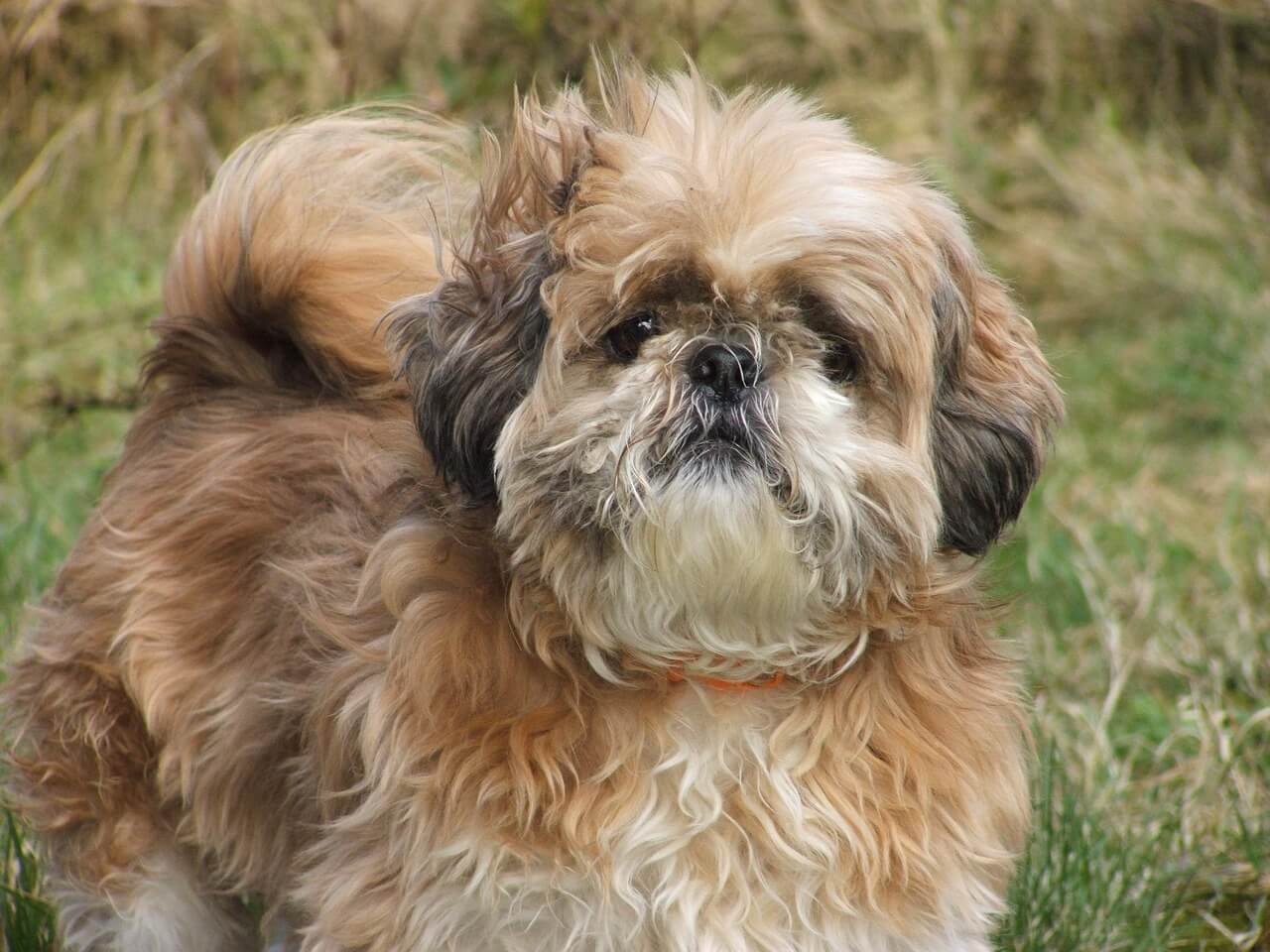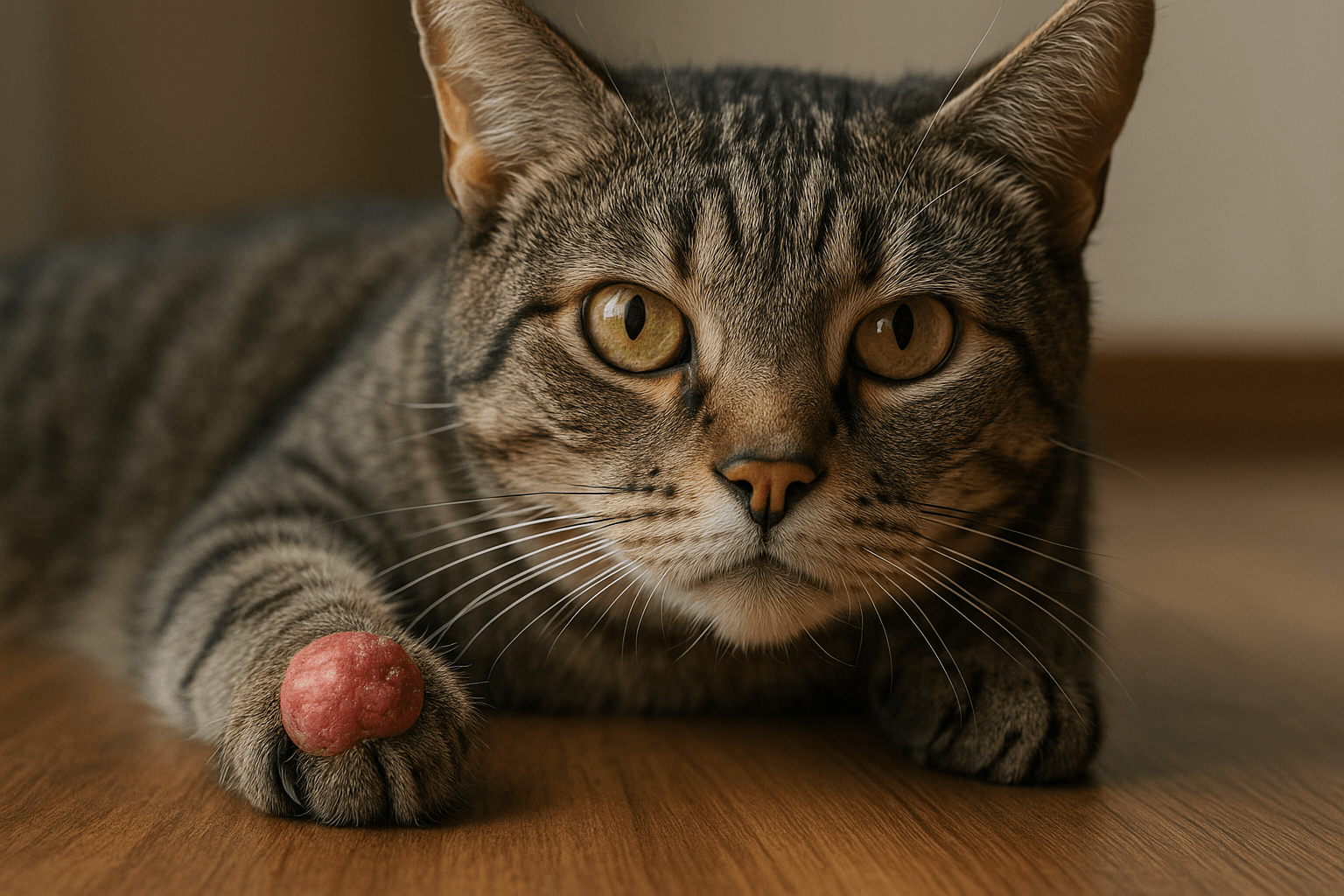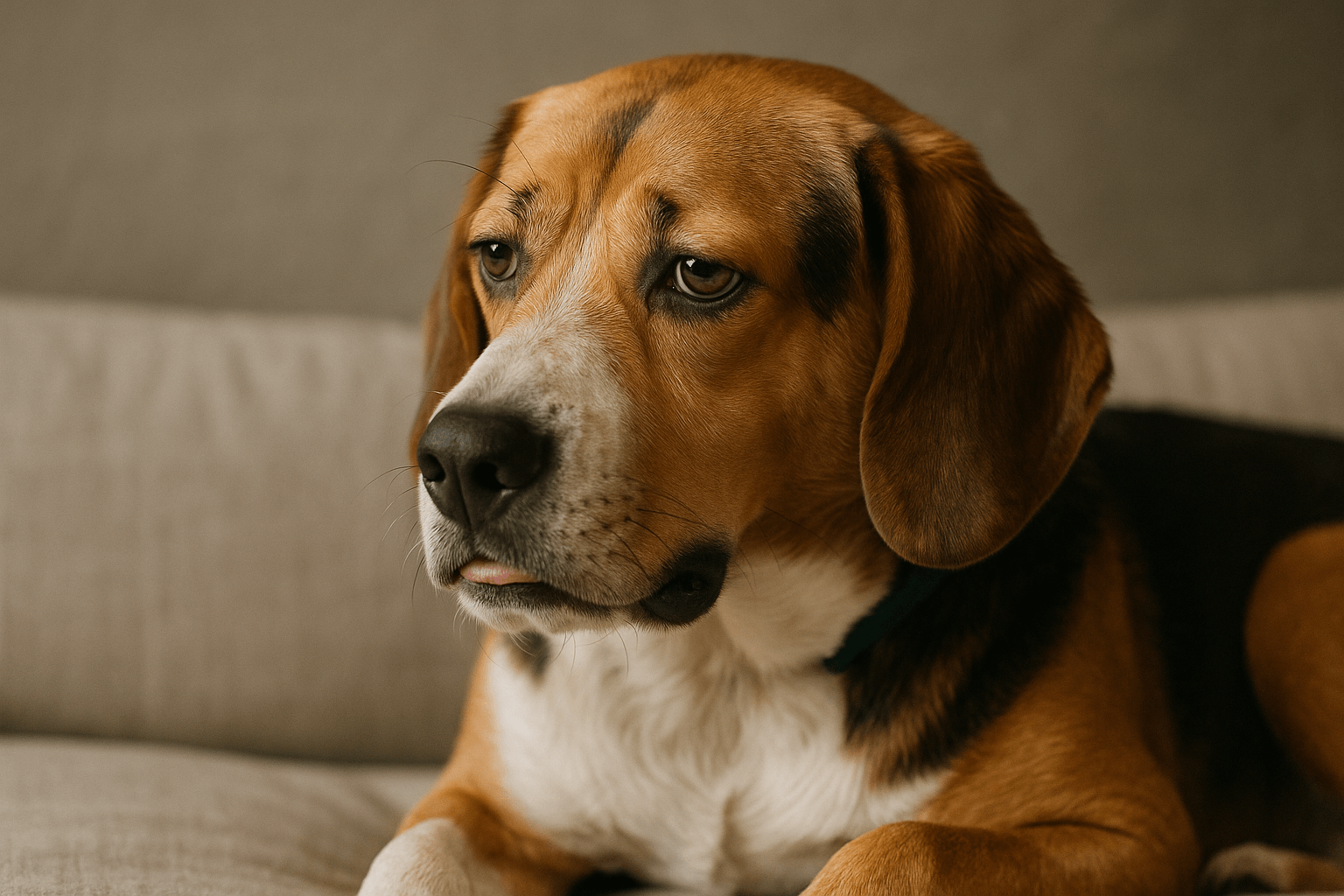Why Does My Dog Keep Licking His Butt?
If you’ve ever caught your dog obsessively licking their rear end, you’re not alone. This behavior, while often amusing or slightly concerning, is fairly common among dogs. However, excessive butt licking can sometimes indicate an underlying issue that requires attention. From simple grooming habits to potential health concerns, there are several reasons why your furry friend might be engaging in this peculiar behavior. In this blog post, we’ll explore the possible causes, how to address them, and when it’s time to consult your veterinarian. Understanding why your dog licks their butt will help ensure their comfort, health, and happiness.
Common Reasons Why Dogs Lick Their Butts
Dogs lick their butts for a variety of reasons, ranging from normal grooming behaviors to signs of discomfort or irritation. Here are some of the most common explanations behind this behavior.
Anal Gland Issues:
Dogs have small sacs near their anus that produce a smelly fluid. If these glands become impacted or infected, they can cause discomfort, prompting your dog to lick excessively.Parasites Like Worms:
Intestinal parasites, such as tapeworms or roundworms, can irritate your dog’s anal area, leading to increased licking as they try to relieve the itch.Allergies or Skin Irritation:
Allergies to food, pollen, or environmental factors can cause itching around the rear end, making your dog lick to soothe the irritation.Digestive Problems:
Loose stools or diarrhea can leave residue on your dog’s fur, prompting them to clean themselves more frequently than usual.Boredom or Anxiety:
Some dogs lick their butts out of habit, stress, or boredom, especially if they don’t have enough mental or physical stimulation.
By identifying the root cause of your dog’s behavior, you can take appropriate steps to address it and improve their overall well-being.

Signs Your Dog’s Butt Licking Is a Problem
While occasional licking is normal, certain signs indicate that your dog’s behavior may be linked to a medical or behavioral issue. Watch for these red flags that suggest further investigation is needed.
Excessive Licking or Chewing:
If your dog spends hours licking their rear end or seems unable to stop, it could signal discomfort or pain.Redness or Swelling Around the Area:
Visible inflammation or irritation near the anus may point to an infection, injury, or allergic reaction.Scooting Across the Floor:
Dogs that drag their bottoms along the ground may be trying to relieve pressure caused by impacted anal glands or other issues.Foul Odor:
A strong, unpleasant smell coming from your dog’s rear end could indicate an infection, impacted glands, or the presence of worms.Changes in Behavior:
If your dog seems unusually restless, lethargic, or irritable, it might be due to discomfort stemming from their anal area.
Recognizing these symptoms early allows you to intervene promptly and prevent complications.
Check this guide 👉Why Dogs Kick Their Back Legs: Best 7 Expert Tips!
Check this guide 👉Understanding Why Dogs Show Their Teeth: Best 7 Expert Tips!
Check this guide 👉Why Do Dogs Sniff Your Crotch? Best 7 Expert Tips!
Possible Causes of Excessive Butt Licking | Steps to Address the Issue |
|---|---|
Impacted or infected anal glands | Schedule a vet visit for gland expression |
Presence of intestinal parasites | Administer deworming medication as prescribed |
Food or environmental allergies | Identify triggers and adjust diet/environment |
Digestive problems like diarrhea | Monitor diet and hydration; consult a vet |
Boredom or anxiety | Provide toys, exercise, and mental stimulation |
How to Prevent Excessive Butt Licking
Preventing excessive butt licking starts with understanding its root causes and taking proactive measures to keep your dog healthy and comfortable. Here are some practical tips to minimize this behavior.
Regular Vet Check-Ups:
Routine veterinary exams can catch issues like impacted glands or parasites before they escalate into bigger problems.Maintain Good Hygiene:
Keep your dog’s rear end clean by wiping it gently after walks or bowel movements to remove dirt or residue.Feed a Balanced Diet:
A nutritious diet free of allergens supports digestive health and reduces the risk of skin irritation or loose stools.Exercise and Mental Stimulation:
Providing plenty of physical activity and engaging toys helps redirect your dog’s energy away from obsessive licking.Monitor for Parasites:
Use preventative flea and worm treatments year-round to protect your dog from infestations that could cause itching.
Taking these preventive steps ensures your dog stays happy, healthy, and less likely to engage in excessive licking.
When to Consult Your Veterinarian
While some cases of butt licking are harmless, others require professional attention. Knowing when to seek veterinary care is crucial for addressing potential health concerns.
Persistent Licking Despite Home Care:
If your efforts to alleviate the issue at home haven’t worked, it’s time to consult your vet for a thorough evaluation.Visible Signs of Infection:
Redness, swelling, discharge, or bleeding around the anal area warrants immediate medical attention.Weight Loss or Appetite Changes:
These symptoms paired with excessive licking could indicate a more serious gastrointestinal or systemic issue.Difficulty Defecating:
Straining during bowel movements or blood in the stool should never be ignored, as they may relate to anal gland problems or other conditions.Unexplained Behavioral Changes:
Sudden shifts in mood, energy levels, or activity patterns could signal underlying pain or illness.
Prompt veterinary care ensures your dog receives timely treatment and avoids unnecessary suffering.
Additional Tips for Managing Anal Gland Issues
Anal gland problems are a common reason for excessive butt licking. Here are some additional tips to manage and prevent these issues effectively.
Increase Fiber Intake:
Adding fiber-rich foods like pumpkin or sweet potato to your dog’s diet can promote firmer stools, which helps naturally express the glands.Use Supplements:
Omega-3 fatty acids and probiotics support skin and digestive health, reducing the likelihood of gland-related issues.Avoid Overweight Conditions:
Obesity can put pressure on the anal glands, making them harder to empty naturally. Maintain a healthy weight through diet and exercise.Monitor Stool Consistency:
Soft or irregular stools can prevent proper gland expression. Ensure your dog’s diet promotes regular bowel movements.Schedule Regular Grooming Appointments:
Professional groomers can check and maintain your dog’s anal gland health as part of routine care.
With these strategies, you can minimize the risk of recurring anal gland problems.
How to Make Your Dog’s Environment More Comfortable
A comfortable environment plays a key role in reducing stress-related behaviors like excessive licking. Follow these tips to create a calming space for your dog.
Provide a Cozy Bed:
A soft, supportive bed gives your dog a safe place to relax and unwind.Minimize Stressors:
Loud noises, unfamiliar guests, or chaotic environments can increase anxiety. Create a quiet retreat for your dog when needed.Incorporate Calming Scents:
Products containing pheromones or essential oils like lavender can help soothe anxious dogs.Establish a Routine:
Consistent feeding, walking, and play schedules give your dog a sense of security and predictability.Use Interactive Toys:
Puzzle toys and treat-dispensing gadgets keep your dog mentally engaged and distracted from obsessive behaviors.
A peaceful environment supports your dog’s emotional well-being and reduces the urge to lick excessively.
Holistic Approaches to Reduce Butt Licking
For pet owners interested in holistic methods, there are natural ways to address and reduce excessive butt licking in dogs. Consider these gentle yet effective approaches.
Herbal Remedies:
Herbs like chamomile and calendula can soothe irritated skin and reduce inflammation when applied topically.Acupuncture Therapy:
Acupuncture may help alleviate pain or discomfort associated with chronic conditions contributing to licking.Probiotic Supplements:
Boosting gut health with probiotics can improve digestion and reduce the occurrence of loose stools that lead to licking.Hydrotherapy Baths:
Warm water baths with mild, hypoallergenic shampoos cleanse and soothe irritated areas without causing further dryness.Massage Techniques:
Gentle massage around the tail and hindquarters can relieve tension and improve circulation, promoting healing.
Holistic options offer alternative solutions for managing your dog’s behavior naturally and safely.
FAQ
Is it normal for dogs to lick their butts occasionally?
Yes, occasional licking is normal and often part of a dog’s grooming routine. However, excessive licking may indicate a problem.
Can allergies cause my dog to lick their butt?
Absolutely. Food or environmental allergies can lead to skin irritation, prompting your dog to lick certain areas, including their rear end.
What are anal glands, and why do they matter?
Anal glands are small sacs near a dog’s anus that produce a smelly fluid. When these glands become impacted or infected, they can cause discomfort and lead to excessive licking.
How can I tell if my dog has parasites?
Look for signs like itching, hair loss, visible fleas or ticks, or worms in your dog’s stool. A vet can confirm the presence of parasites through tests.
Should I try expressing my dog’s anal glands at home?
Unless you’re trained, it’s best to leave this task to a professional. Incorrect techniques can cause injury or infection.
Understanding and Addressing Your Dog’s Butt Licking Behavior
While occasional butt licking is a natural part of a dog’s grooming routine, persistent or excessive licking often signals an underlying issue that needs attention. By staying vigilant and recognizing the signs of potential problems, you can ensure your dog remains healthy and comfortable. Whether the cause is medical, dietary, or behavioral, addressing it promptly strengthens the bond between you and your furry companion. Remember, when in doubt, consulting your veterinarian is always the safest course of action. With proper care and attention, you can keep your dog happy, healthy, and free from unnecessary discomfort.
Cuterebra Larvae in Cats: Best 7 Expert Tips! – Expert advice on signs, treatment & prevention of this rare but serious feline parasitic infestation.
Cuterebra Larvae in Dogs: Best 7 Expert Tips! – Expert advice on signs, treatment & prevention of this rare but serious parasitic infestation.
Cat Tumor on Paw: Best 7 Expert Tips! – Expert advice on signs, diagnosis, treatment & care for feline paw tumors.
Panacur Side Effects in Dogs: Best 7 Expert Tips! – Safe usage, common reactions & when to call the vet.





